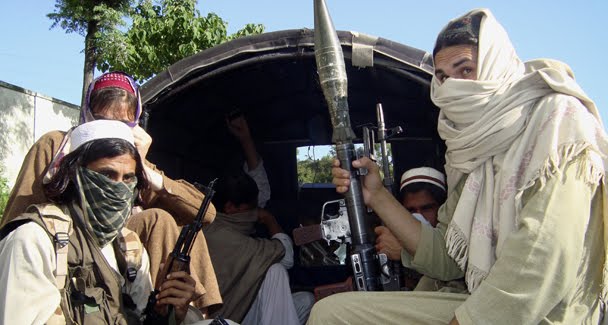This is as per a detailed assessment carried out by Afghan security agencies.
New Delhi: Kabul is going to witness multiple high-ranking suicide assassinations, targeting political and military entities, that will be carried out by the Taliban in collaboration with the Haqqani network, Jaish-e-
As per this recent assessment, these attacks would not be claimed by Taliban or the Haqqani network, that will automatically shift it to the ISIS and save the Taliban from any criticism and possible repercussions.
The Haqqani network, as per people aware of the situation, is going to carry out large-scale military operations to capture the ancient town of Ghanzi and the town of Paktia, Paktika and Khost, which share border with Pakistan.
“Targeting of national highways by using IEDs and taking them under their control is going to be attempted. The IED blasts will be carried out targeting the Afghan National and Defense Security Forces (ANDSF) to push the security personnel to desert the ANDSF due to fear so that they can be absorbed by the Taliban and Haqqanis,” an official said.
The official said that Taliban’s “spring offensive’ (an annual exercise during which the attacks on security personnel increase massively) has already started and the only difference this year is that they have not announced it officially. Earlier this week on Monday, a car bomb attack on an intelligence base in central Ghazni province in Afghanistan killed at least seven members of the security forces and wounded 40 others. The suicide attack using a four-wheeler was claimed by the Taliban.
According to officials aware of the intelligence gathering exercise, the Haqqani network’s morale has increased several notches after the release of Anas Haqqani last year on 18 November in a prisoner swap which involved 10 Afghani soldiers, two professors, one American and one Australian, who were kidnapped in August 2016 from Kabul by the Taliban.
The 26-year-old Anas Haqqani is the younger brother of the chief of the Haqqani network,
In his interview to Nunn Asia, an Afghanistan news website, just after his release, Anas Haqqani had accepted that Pakistan made sure that he was a part of the prisoner swap. His brother, the 5’7, 70 kg Sirajuddin continues to be on FBI’s most wanted list.
Pakistan’s continued support to the Taliban has also been confirmed by a recent quarterly report that was prepared by Defense Intelligence Agency (DIA) of the U.S. Department of Defense. The DIA is an intelligence agency of the United States government, specialising in defense and military intelligence.
The report was released on 19 May and is based on an assessment carried out by US agencies from the period of January to March.
The report has stated that: “Pakistan continues to harbour the Taliban and associated militant groups in Pakistan, such as the Haqqani network, which maintains the ability to conduct attacks against Afghan interests,” while adding, “Pakistan has encouraged the Afghan Taliban to participate in peace talks, but refrained from applying coercive pressure
According to the DIA, Pakistan’s strategic objectives in Afghanistan continue to be “countering Indian influence and mitigating spillover of instability into its territory”.
The DIA reported that Pakistan likely views the “increased Taliban influence in Afghanistan as supporting its overall objectives and will seek to influence intra-Afghan peace talks in a direction favourable to Pakistan” while stating, “ Pakistan has a long history of allowing militants to cross back and forth across Pakistan’s border”.

